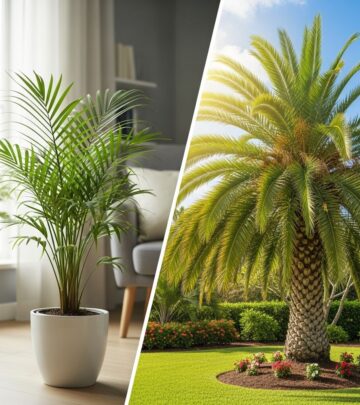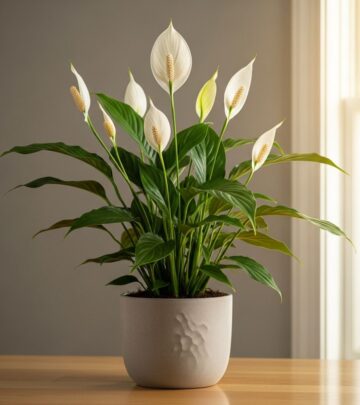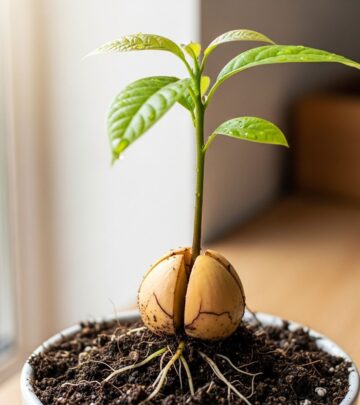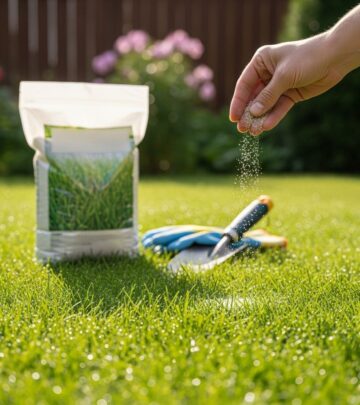Philodendron Brandtianum Complete Care Guide
Tailor your watering and lighting routine to showcase its stunning silver-green leaves.
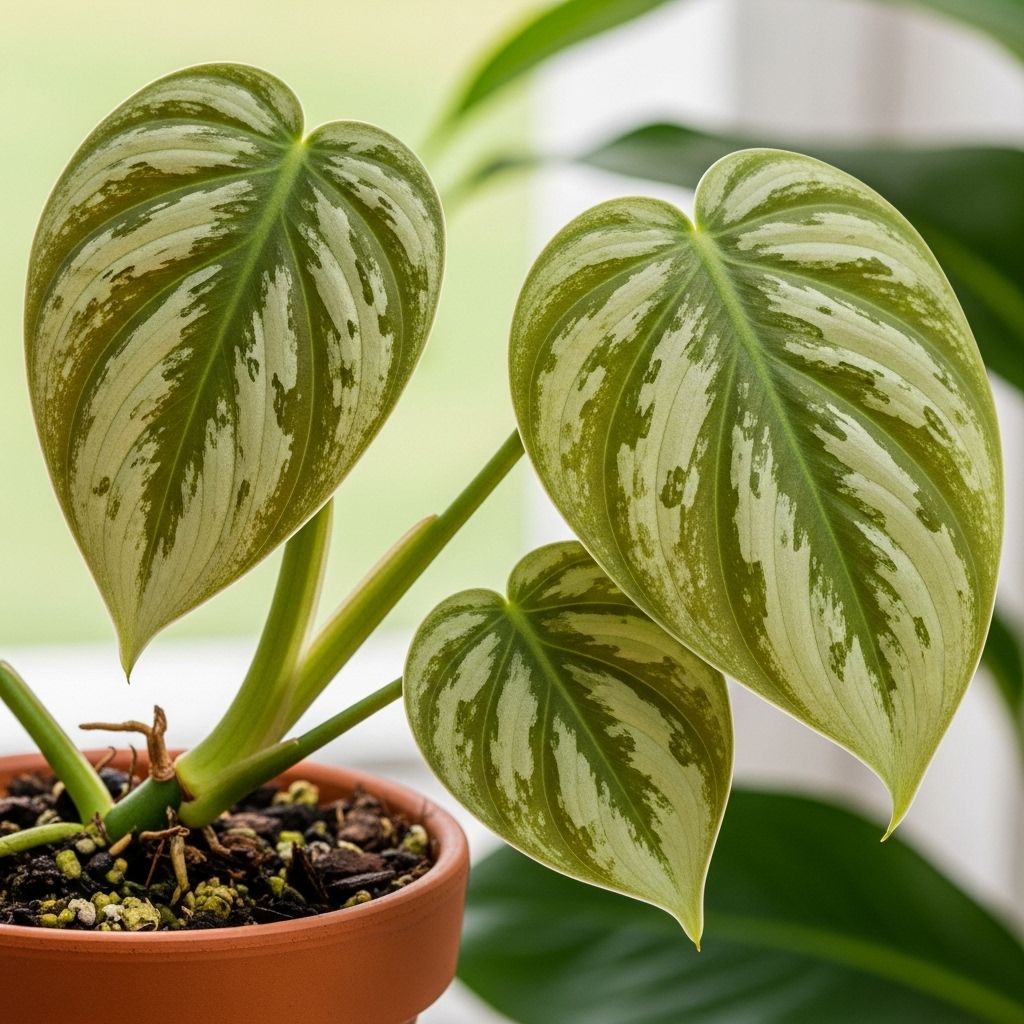
How to Grow, Plant, and Care For Philodendron Brandtianum
Looking to add a unique and eye-catching houseplant to your collection? The Philodendron brandtianum, also known as the silver leaf philodendron, stands out with its shimmering silver-green foliage and relatively easy care needs. This comprehensive guide will walk you through everything you need to know about planting, growing, and maintaining a healthy Philodendron brandtianum indoors or outdoors in suitable climates.
Plant Overview
| Attribute | Details |
|---|---|
| Common Name | Silver Leaf Philodendron |
| Botanical Name | Philodendron brandtianum |
| Plant Type | Houseplant, climber or trailer |
| Native Area | Colombia, Brazil, Bolivia, Ecuador, Peru |
| Height | Up to 4-5 feet (indoors with support) |
| Exposure | Bright, indirect light |
| Soil | Well-draining, fertile potting mix |
| Water | Medium moisture; allow topsoil to dry slightly between watering |
| Hardiness Zone | USDA 9b–11 (best grown indoors elsewhere) |
| Pests & Diseases | Mealybugs, spider mites, leaf spot |
| Maintenance | Low |
About Philodendron Brandtianum
Philodendron brandtianum is prized for its striking foliage. Each heart-shaped leaf features a blend of olive-green and bright silver patches and stripes. The plant’s unique coloring, bushy growth, and flexibility to climb or cascade make it a favorite for interior design and houseplant enthusiasts alike.
- Growth Habit: Can be grown as a climbing vine with the support of a moss pole or as a trailing plant cascading from a hanging basket or shelf.
- Foliage: Leaves are typically up to 4 inches long indoors, with a silver mottling pattern that sets them apart from other philodendrons.
- Flowering: Rare in indoor conditions; when it occurs, flowers are green with violet interiors.
- Air Purification: Like many philodendrons, helps improve indoor air quality by removing toxins.
Ideal Growing Conditions
Light Requirements
Bright indirect light is best. Too much direct sunlight may scorch the leaves, fading their silver pattern, while too little light results in leggy growth and reduced leaf coloration. Semi-shaded spots work, but avoid deep shade for best results.
- Ideal for east or north-facing windows.
- If using artificial light, a grow light can be beneficial for lush, vibrant leaves.
Temperature & Humidity
- Temperature: Thrives in warm rooms between 65°F and 85°F (18°C–29°C).
- Humidity: Prefers moderate to high humidity (>50%). In drier climates or during winter, boost humidity with a humidifier, pebble tray, or regular misting (but avoid excessive moisture on leaves to prevent disease).
- Outdoor Growing: Hardy in USDA zones 9b to 11. Sensitive to cold—protect from temperatures below 50°F (10°C).
Soil and Potting
- Soil: Use a high-quality, well-drained potting mix rich in organic matter. A mix designed for aroids or indoor plants is ideal.
- Potting: Ensure the pot has drainage holes to avoid waterlogged roots.
- Repotting: Repot every 1–2 years or when roots become crowded, using fresh soil each time.
Planting Philodendron Brandtianum
Planting is straightforward. Start with a healthy, rooted cutting or young plant.
- Choose a pot with drainage holes and fill with a well-draining mix.
- Carefully place the plant, spreading roots out. Top up with soil to secure.
- Water thoroughly to settle the plant and remove any air pockets.
- Settle your plant in bright, indirect light and avoid moving it excessively while it acclimates.
Remember, this species can be trained to climb a moss pole, trellis, or to trail from a high shelf. Add a support if you want larger leaves and a vertical habit.
Watering Philodendron Brandtianum
One of the keys to success is consistent, moderate watering:
- Allow the top inch of soil to dry out between waterings, then water deeply.
- Empty saucers or cachepots after watering to prevent root rot.
- Reduce watering frequency in winter or in lower light conditions.
Signs of overwatering include yellowing leaves and mushy roots; underwatering may present as curling or crispy leaves.
Fertilizing
- Feed with a balanced, water-soluble houseplant fertilizer diluted to half strength every 2–4 weeks during spring and summer.
- Pause or reduce feeding in autumn and winter, as growth naturally slows.
Pruning and Maintenance
- Pruning is not usually required, but you can trim stems to control shape, encourage bushier growth, or remove yellow or damaged leaves.
- Disinfect pruning shears before use to prevent spreading disease.
- Wipe down leaves with a damp cloth periodically to keep them dust-free and healthy.
Propagation
Philodendron brandtianum is easy to propagate using stem cuttings.
- Choose a healthy stem with at least one node (the small bump where leaves emerge).
- Cut below a node using a clean, sharp tool.
- Place cuttings in water, sphagnum moss, or directly into moist potting mix.
- If using water or moss, pot up the cutting once roots are an inch or two long.
- Keep in a warm, humid environment with bright, indirect light for best rooting success.
Pests and Diseases
Philodendron brandtianum is generally robust but can fall prey to some common indoor plant pests and diseases:
- Mealybugs: Watch for white, cotton-like masses. Treat with insecticidal soap or isopropyl alcohol swabs.
- Spider mites: Fine webbing and stippling on leaves. Increase humidity and use miticides if necessary.
- Leaf spot and bacterial infections: Avoid splashing water on foliage and trim off affected leaves. Ensure good airflow around your plants.
Routine inspection and prompt action keep most problems manageable.
Troubleshooting Common Problems
- Yellow leaves: Often a sign of too much water or lack of nutrients.
- Brown, crispy leaf edges: Usually a symptom of low humidity or underwatering.
- Pale or stretched growth: Plant may need more light.
- Wilting and root rot: Caused by waterlogged soil; check drainage and repot if needed.
- Leaves losing silver color: Generally due to insufficient light.
Design and Display Ideas
- Train Philodendron brandtianum up a moss pole for dramatic, large-leaved growth.
- Let vines cascade from shelves or hanging baskets for a lush, tropical feel.
- Combine with other shade-loving aroids for a striking mixed display.
- Perfect for terrariums (if trimmed regularly for size control) or as a statement desk plant.
Frequently Asked Questions (FAQs)
Q: Is Philodendron brandtianum a beginner-friendly plant?
A: Yes, it is low-maintenance and adapts well to a range of indoor environments, making it suitable for both beginners and experienced growers.
Q: Can Philodendron brandtianum grow in low light?
A: It will survive in low light but grows best and displays its fullest coloration in bright, indirect light.
Q: How often should I water my Philodendron brandtianum?
A: Water when the top inch of soil is dry. The exact frequency depends on your home’s humidity, temperature, and light levels.
Q: Is it safe for pets?
A: No, like most philodendrons, P. brandtianum contains calcium oxalate crystals and is toxic if ingested by pets or humans. Keep out of reach of cats, dogs, and small children.
Q: What is the best way to fertilize Philodendron brandtianum?
A: Use a balanced water-soluble fertilizer at half strength every 2–4 weeks during the active growing season (spring and summer).
Q: Does Philodendron brandtianum need to climb?
A: While not essential, providing a moss pole or trellis encourages larger, healthier leaves and a more upright habit. Vining varieties can also trail beautifully if support is not provided.
Final Thoughts
With its stunning silvered foliage, adaptable nature, and air-purifying abilities, Philodendron brandtianum is an exceptional choice for houseplant lovers seeking an easy yet dazzling addition to their collection. By replicating its tropical habitat with the right light, humidity, and care, you can enjoy lush, thriving plants that transform your indoor space into an urban jungle. Whether climbing or cascading, the silver leaf philodendron is certain to be a centerpiece in any room.
References
- https://www.epicgardening.com/philodendron-brandtianum/
- https://www.gardeningknowhow.com/houseplants/philodendron/growing-silver-leaf-philodendrons.htm
- https://glassboxtropicals.com/philodendron-brandtianum/
- https://www.epicgardening.com/philodendron-varieties/
- http://www.exoticrainforest.com/Philodendron%20variifolium%20pc.html
Read full bio of Anjali Sayee


